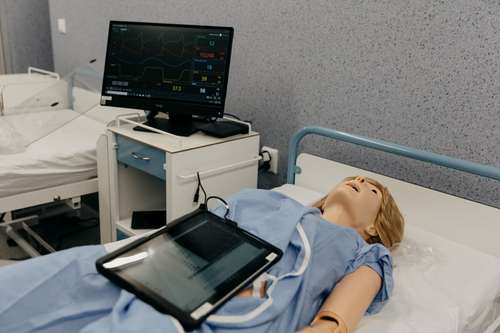Imagine waking up every morning feeling like an exhausted marathon runner, even though you’ve done nothing but sleep. This is the harsh experience of millions of people suffering from obstructive sleep apnea (OSA), a condition that disrupts breathing during sleep, leaving its victims gasping for air.
Recent research has unveiled a troubling connection between this often-overlooked disorder and an increased sleep apnea dementia risk, particularly among women. As we delve into this critical issue, we uncover not just the facts but the profound implications it has for cognitive health.
Understanding Sleep Apnea: A Simple Breakdown
To grasp the gravity of sleep apnea, let’s break it down using a simple analogy. Picture a garden hose: when it’s kinked or blocked, water can’t flow freely. Similarly, in obstructive sleep apnea, the airway becomes blocked during sleep, preventing oxygen from reaching the brain and body. This blockage can happen repeatedly throughout the night, leading to fragmented sleep and decreased oxygen levels.
Now, Why Does This Matter?
Apart from the fact that good sleep is linked to overall improved health quality, our brains are like sponges that soak up information while we sleep. They need uninterrupted time to process memories and clear out waste products. When sleep is disrupted—like when the hose is kinked—the brain struggles to function properly. This disruption can lead to significant cognitive decline over time.
Dr. Tiffany J. Braley, a neurologist at the University of Michigan Health and lead author of a pivotal study on this topic, emphasizes the importance of recognizing sleep apnea as a serious health concern.
The Study: Unveiling the Connection
In a groundbreaking obstructive sleep apnea study involving over 18,500 adults aged 50 and older, researchers discovered that individuals with known or suspected obstructive sleep apnea had a higher likelihood of developing dementia symptoms in subsequent years. While the overall increase in dementia diagnoses associated with sleep apnea did not exceed 5%, this correlation remained statistically significant even after accounting for various factors such as race and education.
What’s particularly alarming is that this risk is amplified for women. The study revealed that women with obstructive sleep apnea were nearly 5% more likely to develop dementia compared to their male counterparts, who exhibited only a 2.5% increase in risk. Dr. Galit Levi Dunietz explains, "As estrogen levels decline during menopause, women's brains may be affected... This period is associated with heightened susceptibility to changes in memory and mood."
The Gender Disparity
The findings underscore a critical gender disparity in how sleep apnea affects cognitive health. After menopause, women experience an increase in sleep apnea diagnoses due to hormonal changes impacting brain function and memory retention. Unfortunately, many cases remain undiagnosed or untreated.
Dr. Ronald Chervin, director of the Division of Sleep Medicine at U-M Health, cautions against overlooking this connection: "Healthcare providers should take into account that untreated sleep apnea may worsen dementia when making decisions about testing and treatment."
Implications for Cognitive Health
The implications of untreated obstructive sleep apnea extend beyond mere inconvenience; they pose serious risks to long-term cognitive health. Untreated OSA can trigger inflammatory changes in the brain that may contribute to cognitive impairment over time. Individuals with untreated OSA often face additional health challenges such as cardiovascular disease and insomnia—conditions that can exacerbate cognitive decline.
Dr. Braley highlights the urgency of early detection: "The potential risks associated with sleep apnea underscore the necessity for early diagnosis." With millions affected by both conditions—estimates suggest that while 30 million Americans have sleep apnea, only 20% have received an official diagnosis—the need for awareness has never been more pressing.
Moving Forward: A Call to Action
As we unravel the intricate relationship between sleep apnea and dementia risk, particularly among women, it becomes clear that this is not just a medical issue; it’s a public health crisis demanding attention. The findings from recent studies call for increased awareness among healthcare professionals regarding the importance of recognizing and addressing obstructive sleep apnea.
By prioritizing early diagnosis and treatment options, we can safeguard cognitive health and empower individuals to reclaim their lives from these debilitating conditions. Understanding these connections can pave the way for healthier futures for millions of people across the world.




